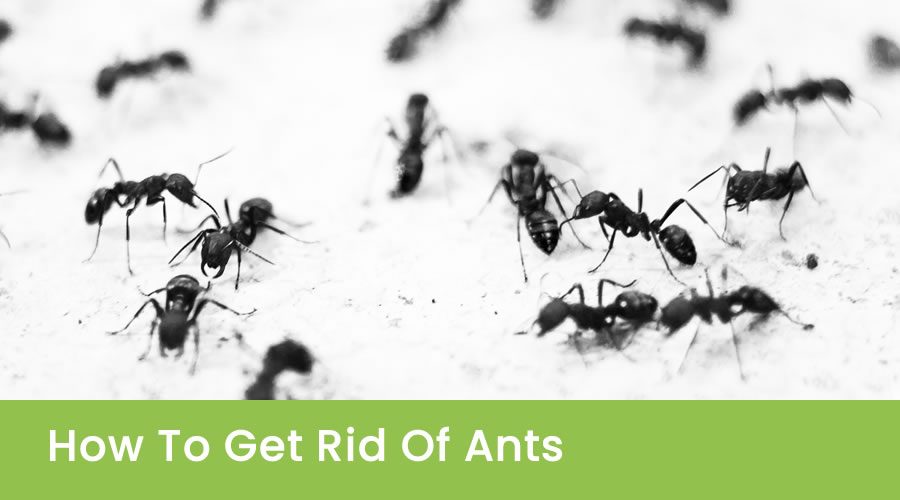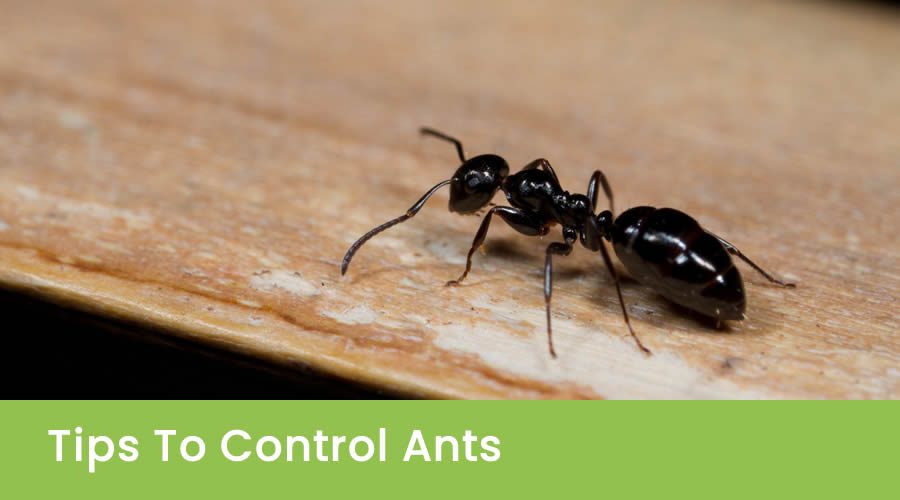How To Get Rid of Ants
The Ultimate Guide to Making Your Home Ant-Free

Are you having issues with ants invading your home? You’re not alone! Ants are one of the most common household pests. But don’t worry, getting rid of ants is very possible with the right techniques and products.
In this comprehensive guide, we’ll share expert tips on how to get rid of ants using natural, non-toxic techniques. You’ll learn how ants behave, what attracts them, and effective strategies to kick them out of your house for good. Let’s get started!
Understanding Ant Behavior
To effectively get rid of ant invasions, you need to understand what makes them tick. Ants display some fascinating behaviors and biology that influence how they colonise and survive.
- Ant colonies contain three main castes: queens, male drones, and sterile female workers. The queen lays all the eggs while the workers forage for grub.
- Workers communicate by laying down pheromone trails when they find food sources. Other ants follow these scent trails back to the prize.
- Ants work together in organised systems, often specialising in tasks like defending the colony or gathering crumbs.
- To navigate, ants use multiple senses like smell, touch, and eyesight. Some even use the sun as a compass.
- Inside your home, ants enter seeking sugary products and water. They squeeze through the smallest cracks seeking out these resources.
- Ants farm aphids for their sweet secretions and often bring them into your house. Getting rid of aphids removes this source.
- Carpenter ants are aptly named because they bore into wood to create their lair, causing structural damage.
- Argentine ants form super colonies with multiple queens. This is why they invade homes in mass numbers.
- Some ant species like fire ants will aggressively defend their den, inflicting painful stings when disturbed.
Take time to identify the species and observe their behaviors. This clues you into their biology so you can cut off their meal supplies and entry points more effectively. Knowledge of ant behavior gives you an advantage and better success in eradicating them.
Products to Kill Ants Indoors
For ants already inside, use these products:
- Baits: Contain slow-acting poison carried back to their hideout.
- Diatomaceous: Natural powder that kills ants on contact.
- Essential oils: Strong scents repel ants, like peppermint, tea tree, and cinnamon.
- Borax powder: Mix with sugar liquid for homemade ant killer trap.
| Product | How It Works |
|---|---|
| Baits | Contain poison that worker ants take back to nest |
| DE | Natural silica powder that kills ants |
| Essential Oils | Strong scents repel ants |
| Borax Powder | Mix with sugar for homemade trap |
Outdoor Ant Treatment Options
Keep nuisance pests from entering in the first place with these outdoor treatments:
- Granular: Broadcast around foundations and ant lines.
- Liquid ant barrier: Create a perimeter around doors.
- Granular insecticide: Sprinkle around the exterior perimeter.
- Ant stakes: Place near ant mounds.
| Product | How It Works |
|---|---|
| Granular Ant Bait | Contains poison that workers ingest |
| Liquid Barrier Spray | Creates a repelling perimeter |
| Granular Insecticide | Kills ants outside foundations |
| Ant Stakes | Slow-acting bait carried to nest |
Identifying Ant Types
Identifying the type of ants invading your home will help you use the right removal steps:
Carpenter Ants:
Sanctuary in wood or insulation. Treat with liquid dusts.
Pavement Ants:
Enter through cracks in foundations. Seal entry points and use lure.
Thief Ants:
Attracted to sweets inside kitchen floor. Wipe out row and use ant killer chemicals.
Odorous House Ants:
Follow chain to food. Break it up and apply barrier sprinkle.
Argentine Ants:
Forage in large numbers for sugary foods. Set out ant gel bait near entrances.
Pharaoh Ants:
Tiny ants that thrive in damp, warm indoor spaces. Use boric acid powder and keep areas dry.
Fire Ants:
Build mountains outdoors and have a painful sting. Pour boiling water on it and apply drenches.
Red Velvet Ants:
Bright red ants with a painful sting. Use liquid trap and seal up cracks they enter through.
Identifying the species will help you find their location and sources so you can cut them off.
Why Ants Invade Your Home
Ants aren’t picky when looking for places to hide and forage. There are three key factors that attract ants:
Sources of Food
Ants forage for any food scraps they can find. Be diligent about cleaning up crumbs, spills, and pet food. Store them in ant-proof containers, and wipe down counters.
Sources of Water
Ants need moisture, so fix any plumbing leaks. Change pet dishes regularly and drain plant overflow trays. Clean gutters and redirect sprinklers away from the home’s perimeter.
Points of Entry
Ants take advantage of the tiniest entryways. Seal cracks in foundations, walls, and doors. Make sure exterior walls have no gaps for ants to sneak through. Caulk or weatherstrip any possible access points.
Cut off these three attractants, and ants will have no reason to enter your house!
All-Natural Ant Extermination Ways
Ready to get rid of those pesky ants for good? Here are some safe, natural ways to clear your home of ants without using harsh chemicals:
Make a vinegar spray: Mix white vinegar and a quart of water in a bottle. Use directly on ants and around entry points. The acid disrupts their scent.
Sprinkle cinnamon: Cinnamon’s strong scent repels ants. Sprinkle powder around door and window frames.
Plug holes with petroleum jelly: Coat electrical outlets, small holes, or cracks with petroleum jelly so ants can’t enter.
Wipe lines with soapy water: Use a cup of water to disrupt it inside the house. This causes them to lose their way back to the ant nest.
Set out vinegar traps: Mix some apple cider vinegar with dish soap in a shallow bowl. Ants are attracted to the vinegar but the soap traps them.
Use lemon peels: Place its peels around areas where you’ve seen ants. Citrus scent deters them from the area.
Draw lines with chalk: Chalk line doorways or seal airtight containers with a line of chalk. The calcium carbonate disrupts the ants’ scent so they turn away.
With some diligence, these simple, natural ant deterrents can help banish ants without using harmful pesticides. Give them a try for a non-toxic solution!

FAQ About Natural Ant Removal
Still have questions about natural ant control? Here are answers to some frequently asked questions:
How long until I see results from natural ant control?
It can take 1-2 weeks for non-toxic ways to fully kick in. Be patient and consistent with natural deterrents.
What scent repels ants instantly?
Strong citrus scents like orange, and lime essential oils deter ants on contact. As do vinegar, cinnamon, and peppermint.
Does salt kill ant hills?
Yes, salt kills ants by dehydrating them. Pour or sprinkle salt directly on outdoor heap.
Do ants hate chalk?
Yes, chalk disrupts the group of ants use to navigate. Draw chalk lines around areas to deter ant infestations.
What home remedies kill ants naturally?
Effective natural ant killers include food grade diatomaceous earth, borax, vinegar, boiling cups of water, cinnamon, citrus peels, and petroleum jelly.
Conclusion
Dealing with persistent ants can be frustrating. Hopefully this guide provided you with a better understanding of why ants invade and how to stop them in their tracks. Focus on locating and sealing their entry points, cutting off sweet food and water sources, and using natural deterrents across multiple zones. With diligence and patience, you can rid ants and reclaim a pest-free home through non-toxic methods. Best of luck getting rid of those pesky ants for good!
Pro Tip:
Coffee grounds don’t just wake you up in the morning, they can also help repel ants! Its strong scent deters ants. Sprinkle used residues around outdoor ant hills or around potential entry points indoors. The caffeine and aroma act as a natural ant repellent. You can also make homemade insect syrup by mixing black pepper with maple syrup. The spicy scent drives away ants. Use this by pouring in a line around the foundations. These two make excellent natural ant deterrents!


